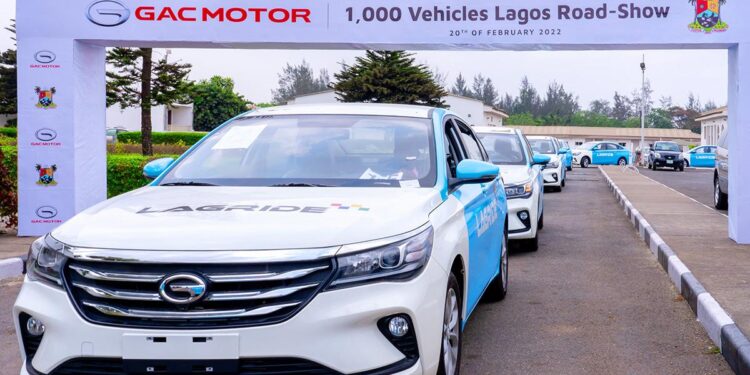LagRide Reloaded: Pioneering Smarter Mobility Solutions for Lagos’ Urban Future
Lagos, a city renowned for its vibrant energy yet notorious for chronic traffic congestion and limited public transit options, is witnessing a transformative shift in urban mobility. The revitalized LagRide initiative emerges as a forward-thinking transportation solution designed to meet the demands of this sprawling megacity. Prioritizing efficiency, environmental responsibility, and inclusivity, LagRide Reloaded seeks to revolutionize daily commutes and set new standards for smart urban transport in West Africa. This article delves into the innovative features of the upgraded service, its anticipated influence on Lagosian travel habits, and its broader role in shaping sustainable city living.
Technology Innovations Powering LagRide’s Modernization of Lagos Transit
LagRide’s evolution is anchored by cutting-edge technological advancements that promise to redefine how residents move across Lagos. Central to this transformation is the deployment of real-time data analytics, enabling precise monitoring of vehicle locations and passenger flow. This capability empowers commuters with accurate arrival times and reduces idle waiting periods—a critical improvement given that recent studies show Lagosians spend an average of 3 hours daily stuck in traffic.
Complementing data analytics is the integration of artificial intelligence (AI), which dynamically adjusts routes based on live traffic patterns and passenger demand fluctuations. By automating route optimization, LagRide maximizes fleet efficiency while minimizing delays caused by unpredictable road conditions.
The introduction of an intuitive mobile application further enhances user experience by offering instant updates on bus schedules, real-time occupancy levels, and seamless cashless payment options. Plans are underway to incorporate contactless boarding systems using smart cards or mobile wallets—features that not only expedite boarding but also reduce physical contact points amid ongoing public health concerns.
Together, these technologies form a robust framework aimed at delivering reliable service tailored to Lagos’ fast-paced lifestyle while promoting greener commuting alternatives.
Strategic Approaches Toward Sustainable Urban Mobility in Lagos
Confronted with rapid population growth—currently estimated at over 25 million—and escalating vehicular emissions contributing significantly to air pollution levels exceeding WHO guidelines by 150%, Lagos stands at a pivotal crossroads requiring sustainable mobility solutions.
A comprehensive approach involves developing an integrated transport network, combining buses, rail systems like light rail expansions currently under feasibility studies targeting completion by 2027, and water-based transit along coastal corridors. Such multimodal connectivity can alleviate pressure on congested roads while offering diverse travel choices aligned with commuter preferences.
Embracing digital innovations remains vital; expanding real-time tracking capabilities alongside digital ticketing platforms fosters transparency and convenience across all modes. Additionally, investing in dedicated infrastructure for non-motorized transport—including protected bicycle lanes inspired by Copenhagen’s successful model—and pedestrian-friendly walkways encourages healthier lifestyles while curbing carbon footprints.
| Sustainability Strategy | Description & Impact |
|---|---|
| Multimodal Integration | Create seamless connections between bus rapid transit (BRT), light rail lines & ferry services. |
| Smart Digital Platforms | User-centric apps providing live updates & cashless payments enhance accessibility. |
| Bicycle & Pedestrian Networks < td >Develop safe pathways encouraging active commuting modes reducing emissions.< / td > < / tr > < tbody > < / table > Collaboration among government bodies such as LAMATA (Lagos Metropolitan Area Transport Authority), private sector innovators including tech startups specializing in mobility-as-a-service (MaaS), and community organizations will be essential to realize these ambitions effectively. Empowering Communities: A Cornerstone for Effective Smart Transit Adoption in LagosThe success story behind any transformative transit project lies heavily within community involvement. Understanding local needs through continuous engagement ensures solutions resonate authentically with those they serve rather than imposing top-down fixes detached from reality. Regular forums such as town hall meetings provide platforms where residents articulate their challenges—from last-mile connectivity issues faced by workers commuting from suburbs like Ikorodu—to suggestions enhancing system usability. Social media channels amplify this dialogue beyond physical boundaries allowing wider participation especially among younger demographics who constitute nearly 60% of the city’s population according to recent census data. Engaging key stakeholders—including educational institutions facilitating student commutes; small businesses reliant on efficient logistics; advocacy groups championing equitable access—further enriches planning processes through diverse perspectives:
These participatory approaches empower citizens as co-creators rather than passive recipients—ultimately cultivating ownership crucial for sustained success within complex urban ecosystems like Lagos’. Conclusion: Charting the Path Forward With LagRide’s Visionary Impact on Urban Mobility in LagosIn summary, LagRide Reloaded marks a significant milestone toward resolving longstanding transportation challenges confronting one of Africa’s fastest-growing cities. By harnessing advanced technology coupled with strategic sustainability initiatives grounded in community collaboration,LagRide offers more than just improved commute times—it embodies a holistic vision fostering inclusivity,safety,and environmental stewardship amidst rapid urban expansion.As Nigeria’s economic hub continues evolving,it becomes imperative that stakeholders—from policymakers crafting supportive regulations,to investors fueling innovation—join forces ensuring this ambitious blueprint translates into tangible benefits.LagRide thus stands poised not only as a catalyst transforming how millions traverse their city,but also as an exemplar inspiring other African metropolises aspiring toward smarter,multimodal futures.The journey ahead promises dynamic progress,and all eyes remain fixed upon this groundbreaking endeavor reshaping mobility landscapes across West Africa’s largest metropolis. |















